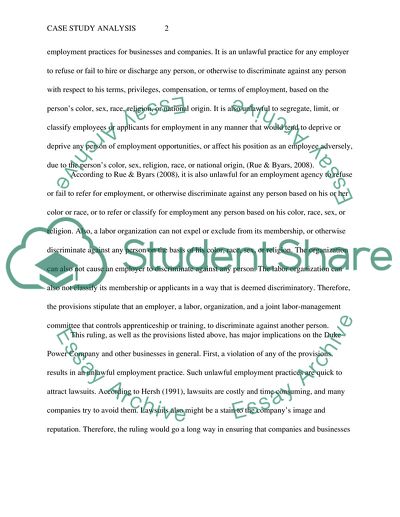Cite this document
(“Griggs v. Duke Power Company Research Paper Example | Topics and Well Written Essays - 1000 words”, n.d.)
Griggs v. Duke Power Company Research Paper Example | Topics and Well Written Essays - 1000 words. Retrieved from https://studentshare.org/law/1609412-case-study-analysis
Griggs v. Duke Power Company Research Paper Example | Topics and Well Written Essays - 1000 words. Retrieved from https://studentshare.org/law/1609412-case-study-analysis
(Griggs V. Duke Power Company Research Paper Example | Topics and Well Written Essays - 1000 Words)
Griggs V. Duke Power Company Research Paper Example | Topics and Well Written Essays - 1000 Words. https://studentshare.org/law/1609412-case-study-analysis.
Griggs V. Duke Power Company Research Paper Example | Topics and Well Written Essays - 1000 Words. https://studentshare.org/law/1609412-case-study-analysis.
“Griggs V. Duke Power Company Research Paper Example | Topics and Well Written Essays - 1000 Words”, n.d. https://studentshare.org/law/1609412-case-study-analysis.


